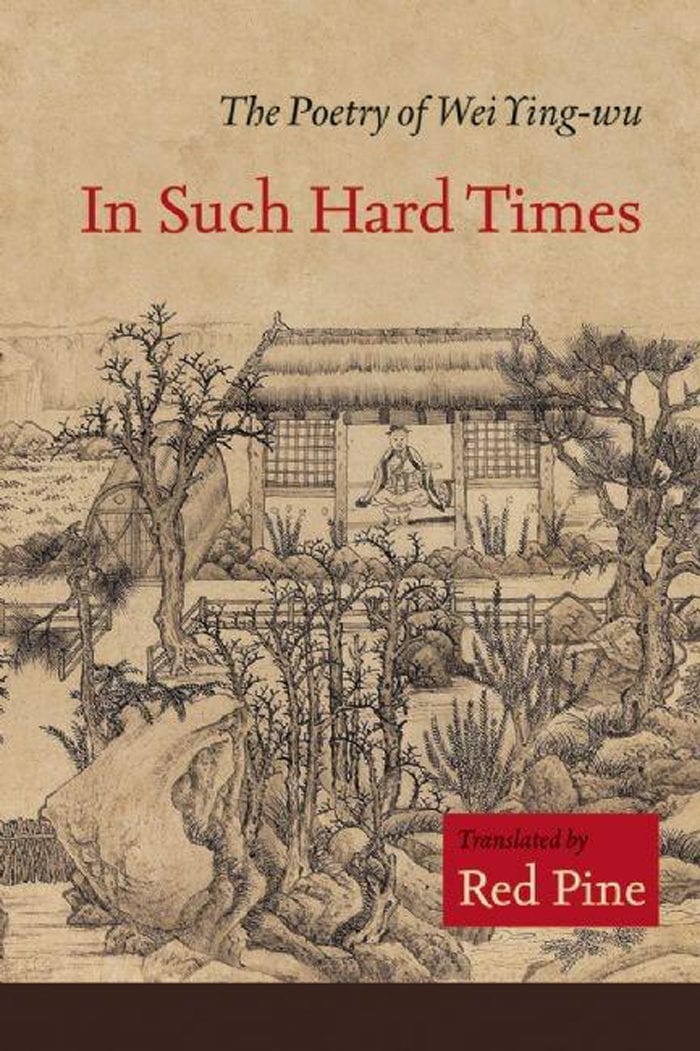
Born into an aristocratic family in decline, Wei Ying-wu (737–791)—ranked alongside such Tang dynasty masters as Tu Fu, Li Pai, and Wang Wei—served in several government posts without distinction. He disdained the literary establishment of his day and fashioned a poetic style counter to the mainstream: one of profound simplicity centered in the natural world. Yet only a handful of his poems had ever been translated into English.
ISBN: 9781556592799
Format: Paperback
ISBN: 9781556595585
Format: Hardcover
Alone at Night at My Monastic Residence: To Secretary Ts’ui
The recluse is in bed but not asleep
leaves are falling in flurries
a cold rain makes the late night darker
fireflies are gone from the tower
the blue flames of dawn are no help
I still suffer from a thin summer robe
I didn’t realize the year was so late
or living apart was so lonely
Reviews
“Chinese experts rate Wei among the greatest poets of China’s classic era, right alongside Tu Fu and Li Po; severe, self-critical, openly political and prone at times to self-pity, Wei remains obscure in the West and shouldn’t be. The prolific translator Red Pine has made a striking selection, 170 poems in a facing-page edition with storylike notes on each. Born to privilege in the last flowering of the T’ang dynasty, Wei (c. 737–791) entered the civil service in his youth and became a provincial official in a time of civil war, enforcing harsh laws he disliked, missing his literary friends and welcoming time alone. Some of Wei’s poems are pellucid, brief impressions: ‘the sound of mallets at the foot of leafless hills.’ Others give moral advice, or show introspection: ‘Governing a prefecture takes no special skill / what bothers me is eating for free.’ Wei’s poetry reflects a sensibility and history that only Chinese traditions could produce. Some of its powers come from Wei’s whole life, others inhere in single vivid moments: ‘when will I hold someone’s hand again / the flowers overhead look like sleet.” —Publishers Weekly
“This book is handsomely produced, brilliantly and usefully annotated, and filled with lines that achieve a casual and compressed balance… So although Wei’s subjects are trouble, uncertainty, loss and leaving, his lucid tone sings of the necessity of acceptance, crystallizing the attitude that we call Zen. Reading him is like listening to Mozart, there’s something healing about the calm profundity with which he spins pain and disaster… Pine/Porter turns [Wei] into an essential poet.” —Los Angeles Times
“Until this ambitious collection was translated by Red Pine, only a handful of Wei’s poems were available in English.” —Shambhala Sun
“This book is a true gift, as most of Wei’s work has never been translated before.” —American Poet
“Red Pine’s translation, in simple yet elegant modern English and with thoughtful footnotes, not only makes Wei available to English-speaking readers, but also, potentially, makes him more accessible to many readers in Wei’s native culture today.” —Judges’ citation, Lucien Stryk Asian Translation Prize, 2010

